beyond the classroom
Special Edition
Henrietta Lacks
The Pain and Posterity of a Life-Saving Legacy
see, hear, and speak some evil
A Brief History of Black Horror


beyond the classroom
Special Edition
Henrietta Lacks
The Pain and Posterity of a Life-Saving Legacy
see, hear, and speak some evil
A Brief History of Black Horror

ebruary is famous for its lengthy brevity. It’s generally known to be the coldest and dreariest time of year, the shortest month that seemingly takes just shy of an eternity to complete. People trudge through February simply to get to the more popular months, the brighter ones that boast new life and lighter jackets (looking at you, April). Right now, though, everyone’s cold and tired, and they want the world to know it. Me? I’m seeing sweet February for all the good and great she

encompasses. She is a fireworks display of pink hearts and candied declarations of feelings. She shines the spotlight on Black History, giving us the tools to keep that spotlight on all year round. She forces us to lean into a slower pace set by the weather, giving ourselves some of the rest and care we’ve passed up in the past. I’m here for all of it. And you should be, too — compassion’s never going out of style. While I can type that with ease, it’s no secret that we’re living in times when compassion doesn’t always play the lead. There’s a lot of hurt right now, a lot of hatred, and the violence, as we know, is ongoing. I’m not here to sugar-glaze over any of that. Kindness seems like the natural choice, but hatred can get picked first if it feels a little easier in the moment, particularly when we’re faced with something we don’t know and don’t understand. Hatred cuts a corner, and then cuts off the destination entirely. Compassion takes a little more legwork. It requires listening, it demands learning, and it can suggest we expand the goalposts of our stance. The thing that makes it easy? Knowledge. It is, in fact, the cornerstone of compassion, the amplifier of empathy. And it’s in our hands. We ourselves can seek more, learn more, and in turn, love more. So we must. Because, while I’m not an expert on much (aside from popcorn), I can
promise you this: we’re not going to get far without compassion in our back pocket.
Here at The Commuter we believe in showcasing the diversity of our institution, along with the surrounding communities, all year-round. We want all the histories, the range of stories, the many profiles to forever line our pages, regardless of month. That said, it is our absolute honor to center this issue around February’s two best features — Black History and Love. The intersection of these staples swirls through this edition’s pages. And while they both go beyond February, we’re so excited to showcase what happens when the two collide.
Warmer and lighter days are on the way, Roadrunners, I swear it. In the meantime, keep
the commuter is the student-run magazine for LBCC, financed by student fees and advertising. Opinions expressed in The Commuter do not necessarily reflect those of the LBCC administration, faculty and students of LBCC. Editorials, columns, letters, and cartoons reflect the opinions of the authors. LBCC is an equal opportunity educator and employer.
The Commuter encourages readers to use its “Opinion” section to express their views on campus, community, regional and national issues. The Commuter attempts to print all submissions received, but reserves the right to edit for grammar, length, libel, privacy concerns and taste. Opinions expressed by letter submitters do not represent the views of the Commuter staff or the College.
We’re really nice and fairly cool and we’d love to hear what you have to say. Not big on journalism but love to journal? Perfect. Are you a STEM major with major opinions? Let’s hear ’em. Like writing about ’80s film? Local animals? Snack hacks? Maybe you have a hefty folder of flash fiction on your laptop, just dying to be published and printed. Drop us a line. We’d love to meet you, read you, and support you. Think your ideas might be too weird or too niche for submission? Even better. The Commuter is an award-winning publication because of our wide range of contributions and our unique contributors. So reach out. We’ll be staring at our email inbox in the meantime, not an ounce of chill to be had.

editor-in-chief
LEAH BIESACK
design editor
KAILYN MCQUISTEN
contents
Dr. Angel Dorantes, Dr. Ramycia McGhee, and Jason Dorsette
Volleyball and Baseball Championships
CARSYN MEYERS
arts & lit editor
CODI WOOD
web editor
CAROLINA SALLES
sports editor reviews
STEVEN PRYOR
marketing director
RYAN JANOWITZ
advisor
ROB PRIEWE
contributors
BRENDA AUTRY
ELIJAH BENSON
REBEKAH BOND
CLAIRE BURCHFIELD
JOSH CANDÉ
KALISSA CLARK
LISA HOOGESTEGER
KAILEY LEGIER
ASPEN MCCALLUM
ARIELLE MILLER
SARAH PRIETO
RYAN SPARKS
QUINN WAHL
Henrietta Lacks
The Pain and Posterity of a Life-Saving Legacy
artist spotlight
Arielle Miller & Aspen McCallum
writing on the wall
You Can't Be a Princess
valley greens for winter blues
Student Photography
arts & entertainment
Horror Media and Literature
Steven's reviews
Sonic Frontiers


 words by CODI WOOD
words by CODI WOOD

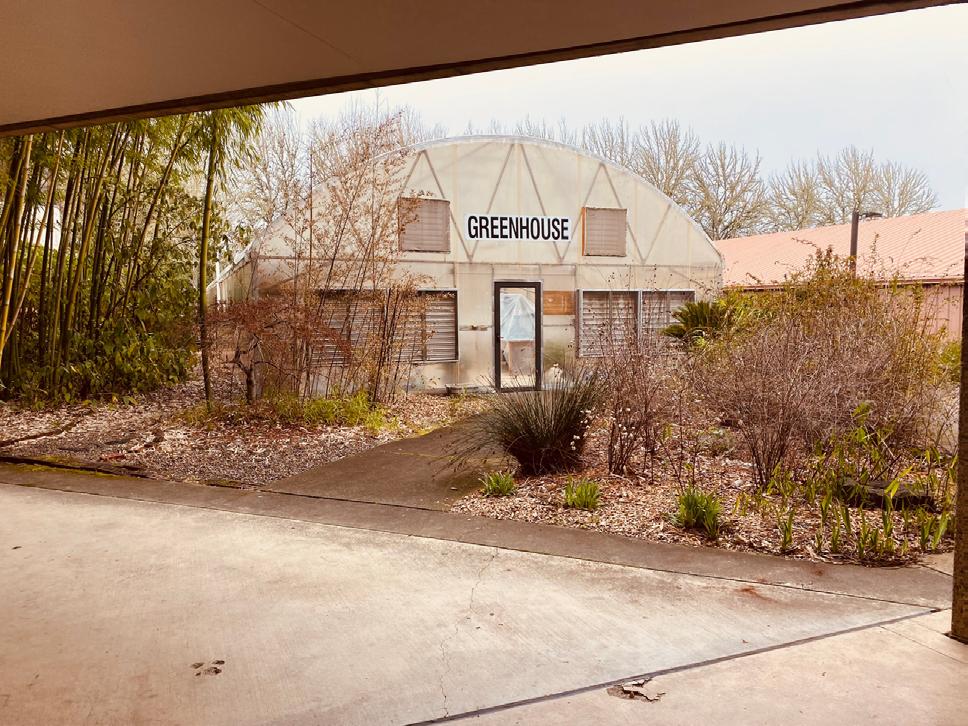

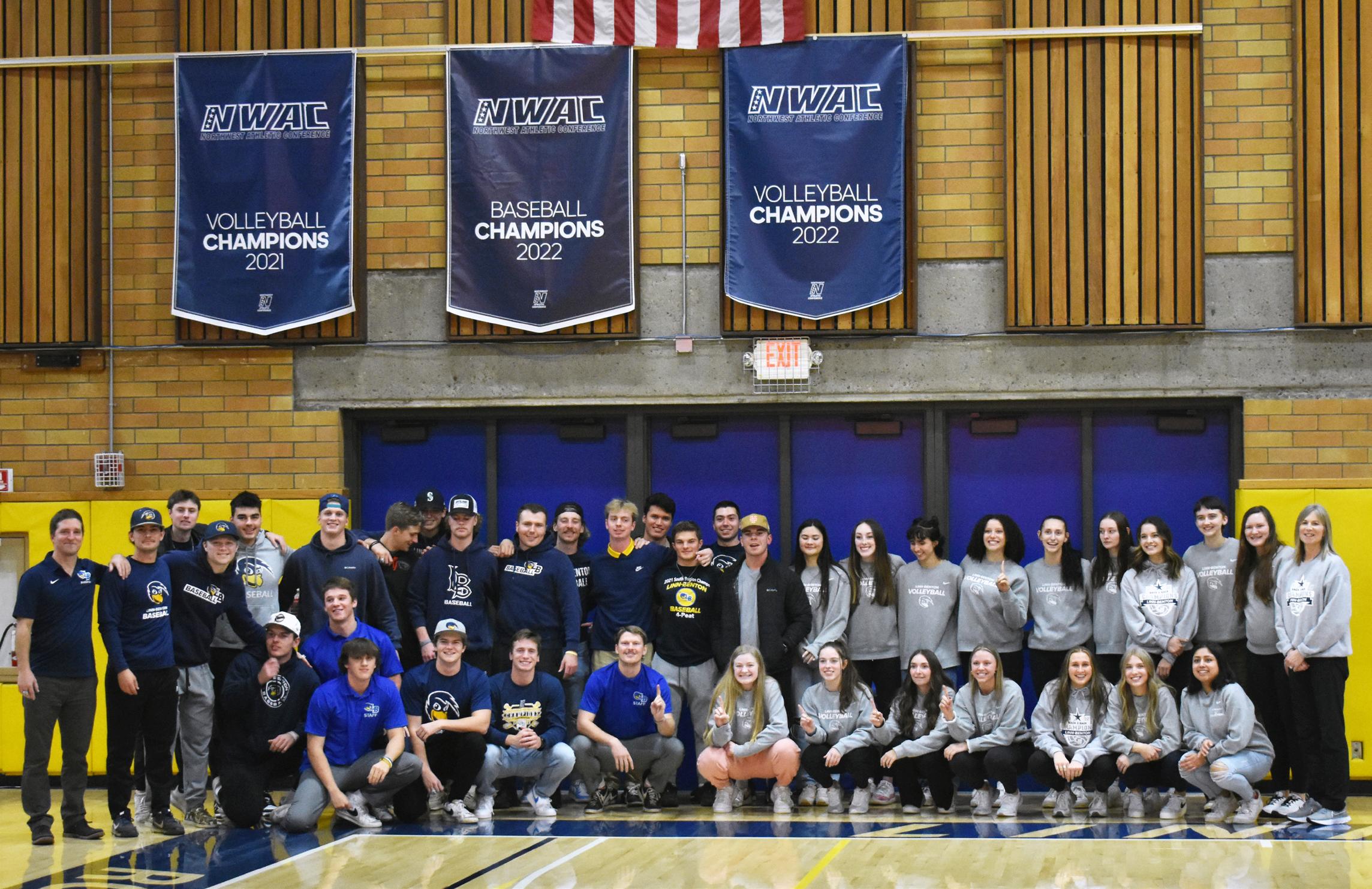 words and photos by JOSH CANDÉ
words and photos by JOSH CANDÉ
 words by CODI WOOD
words by CODI WOOD

Henrietta Lacks, a woman whose name may be unknown to many but whose cells are known to all. The first immortal cells are Henrietta’s. These are the cells that have been used by scientists to understand how the world around us impacts us at a cellular level, how things like chemicals and radiation are interpreted by our immune system. But, what even are immortal cells?
Immortal cells are cells that can replicate and reproduce outside of their host environment. Scientists had been trying to create an environment where eternal human cells could thrive, but were unsuccessful. That is, until Henrietta’s.
Henrietta died of cervical cancer in 1951, yet her cancer cells – the ones that stole her from her family and from her life, and which were quite literally stolen from her – are still alive, thriving, and advancing medicine over seven decades later.
In 1951, when Henrietta was thirty-one years old she arrived at Johns Hopkins Medical Center in Baltimore, Maryland with vaginal bleeding. She had been referred to a gynecologist after feeling a “knot” inside her stomach while she was pregnant with her fifth child. Johns Hopkins was one of the only hospitals at the time to care for Black patients. And there, a malignant tumor was found in her cervix – a large one. This tumor had been missed by doctors while she was giving birth and even after a follow-up exam six weeks after her son’s birth.
There were opportunities to spot the cancer before it was so far advanced it killed her. The lack of early diagnosis despite the opportunity is representative of the way Black women are treated by the US medical system, in 1951 and even now - Black women are not believed, not heard, not prescribed pain medication at the same rate as their white counterparts, and are at a much higher risk of things like maternal death. For example, Black women have a 40% higher death rate for breast cancer, despite having a 4% lower rate of breast cancer occurrence than White women (American Cancer Society). In fact, “Black people are more likely to die from most cancers and to live the shortest amount of time after a cancer diagnosis than any other racial/ethnic group” (more black women die from breast cancer than any other cancer).
After the tumor discovery, she suffered through all that the then-modern medicine could provide for her, including an extremely horrific treatment which involved sewing tubes of radium into her cervix which caused burns and pain. Unfortunately, none of these treatments worked and she passed away on October 4, 1951. Upon her passing she left behind a family who loved her and five children who deserved to know that scientists around the world were buying and selling her cancer cells as a commodity.
The cancer cells which sprung from Henrietta's cervix are known to the greater science community as HeLa cells. These
with her cancer cells, which became labeled as “HeLa.”
Even with their painful origin, the HeLa cells have been lifesaving and have been used to test the effects and efficacy of the very treatments which could have saved her, like chemotherapy. But, chemotherapy is not all Henrietta’s cells have contributed to, they’ve been used to study the effects of things like vaccines, makeup, the effects of radiation on the human cell, and have allowed scientists to expand their knowledge of cancer, cellular reproduction, even the Polio vaccine was created thanks to HeLa. According to the National Institute of Health, HeLa cells have been cited in over 110,000 scientific publications from 1953 to 2018.
(https://osp.od.nih.gov/hela-cells/)
cells, even after being taken from their original environment, continued to divide, and divide, and divide, constantly growing and multiplying allowing scientists to observe, test, and continue to grow them. Henrietta’s cells were the first of their kind. They survived. All the other cells that had been collected died after removal. But, not Henrietta’s cancer cells - they were eternal, immortal. The first line of immortal cells to be collected.
But, they were not willingly given. They were taken, without her consent. The surgeon who performed a biopsy saved some of her tissue for scientific research, without her being informed or given the opportunity to choose - to give her consent. Her tissue was whisked away in vials filled
While, John Hopkins website states that her surgeon had been collecting cells from all of his cervical cancer patients, “regardless of their race or socioeconomic status,” the truth remains that Henrietta Lacks was a Black woman in 1950s Maryland being operated on by a white doctor and she was not informed about the choices being made to her body, to her tissue, to her cells. Why is it that doctors felt entitled to her cells? Why has her family never seen a cent of money when rich - often white - pharmacists, scientists, business men, lived it up while Henrietta laid in an unmarked grave in her family’s cemetery in Halifax County, VA. We know the answers to these questions: systematic racism which has invaded every facet of our world, preventing individuals from getting the care, the life, the acknowledgement that they deserve. The truth is atrocious. Yet, her cells have saved countless lives.
Henrietta Lacks deserves for the world to know her name, not to be quickly jotted down on lab notes as “HeLa cells” but with the reverence and acknowledgement of knowing what she had to endure. What she was forced to give up for us to have her cells. She did not get to live a long life with her family, to watch her five children grow up. We cannot change the situation of her death, the time in which she grew up, nor the way her cells were taken from her. But, we can honour the woman whose cancer ended up killing her and saving us.

Artist
Arielle Miller is a selftaught artist based in the Pacific Northwest who loves to work with ink, charcoal, and graphite. Her artwork brims with dreamlike detail, inspired
by nature, passion, romance, and the surreal. She is currently pursuing a Bachelor of Arts in Cultural and Linguistic Anthropology at Oregon State University.

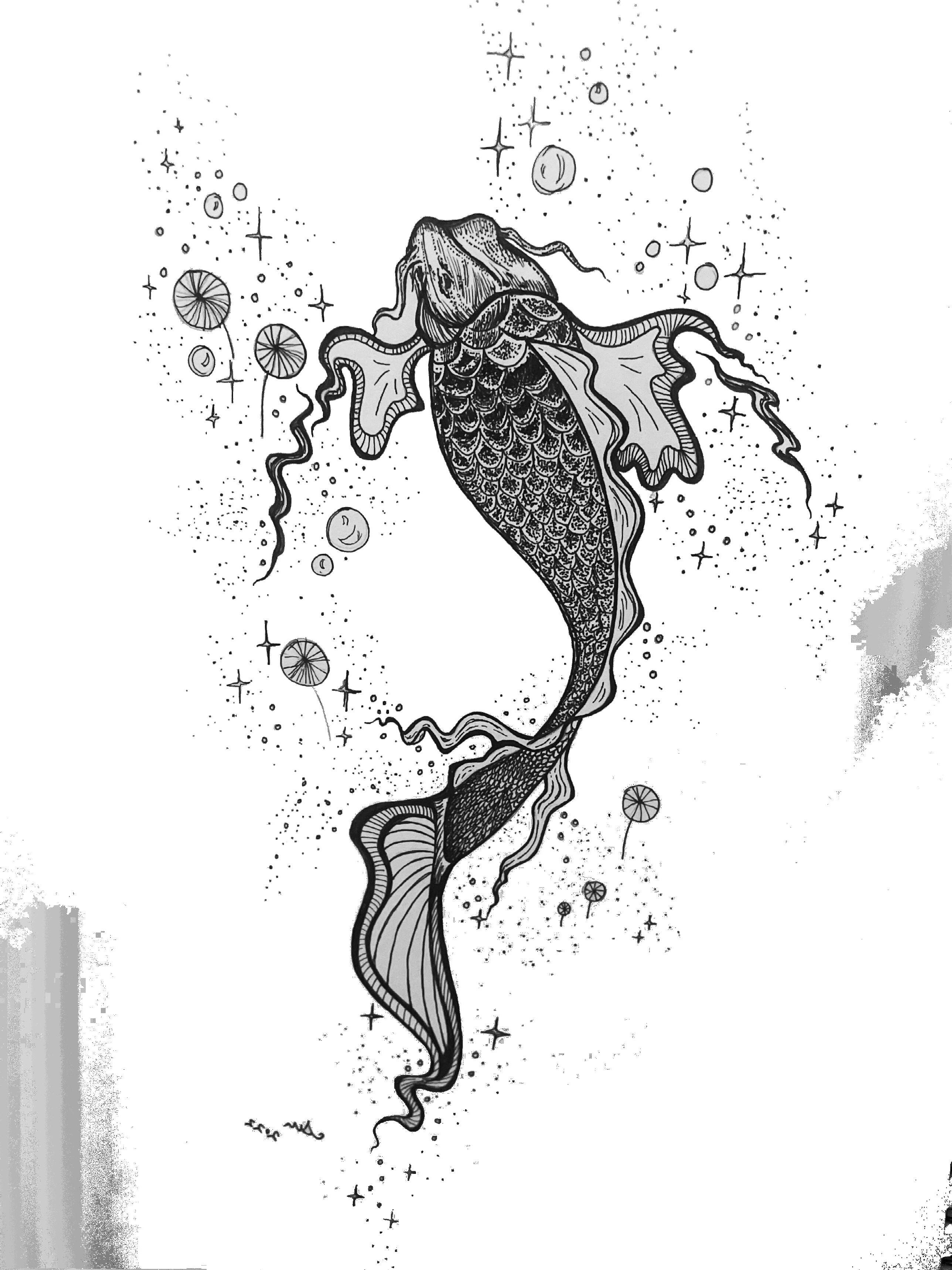

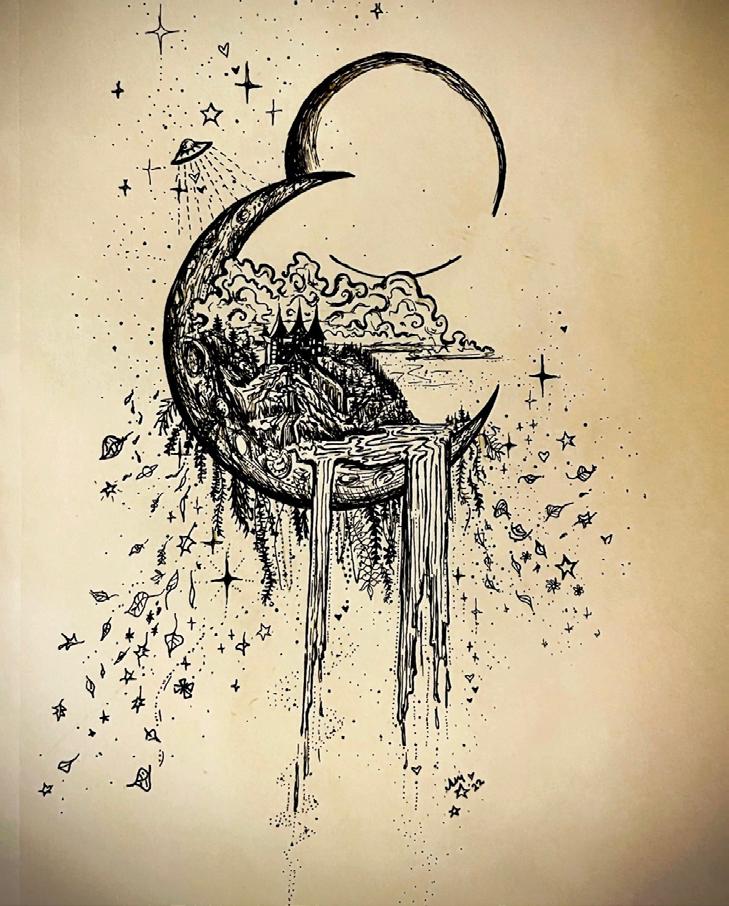

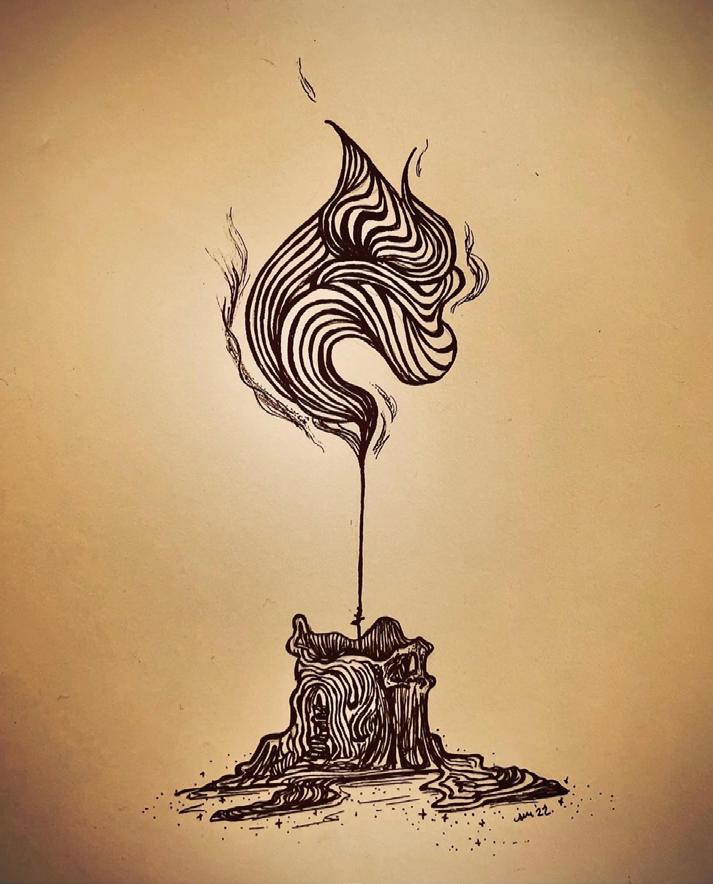
Aspen McCallum is currently a student at Oregon State University pursuing a Bachelor's of Fine Arts with a focus in studio painting, drawing, and printmaking. When not working on projects for class, McCallum

pursues other art mediums, some of which include stained and fused glass, pottery, crochet, and their favorite: alcohol inks. McCallum has been extremely interested and involved in art from a very
early age, no doubt due to their parent’s artistic careers: mother, a graphic designer and father, a jeweler. On their own work, McCallum says, “Art is my passion. From a very young age I’ve been practicing art and
Artist Spotlight:



I was always encouraged to find it in everything I explored. Today, I still carry this passion in my perspective of the world by looking further, thinking deeper, and having a curious and open mind.”▲“Treehouse,” 2022, Etching ▼ “Goldfish Building,” 2022, Posca pens ▲ “McKees Beach,” 2021, Mural ▲ “Center of the Solar System” 2022, Monotype, 18x24 in

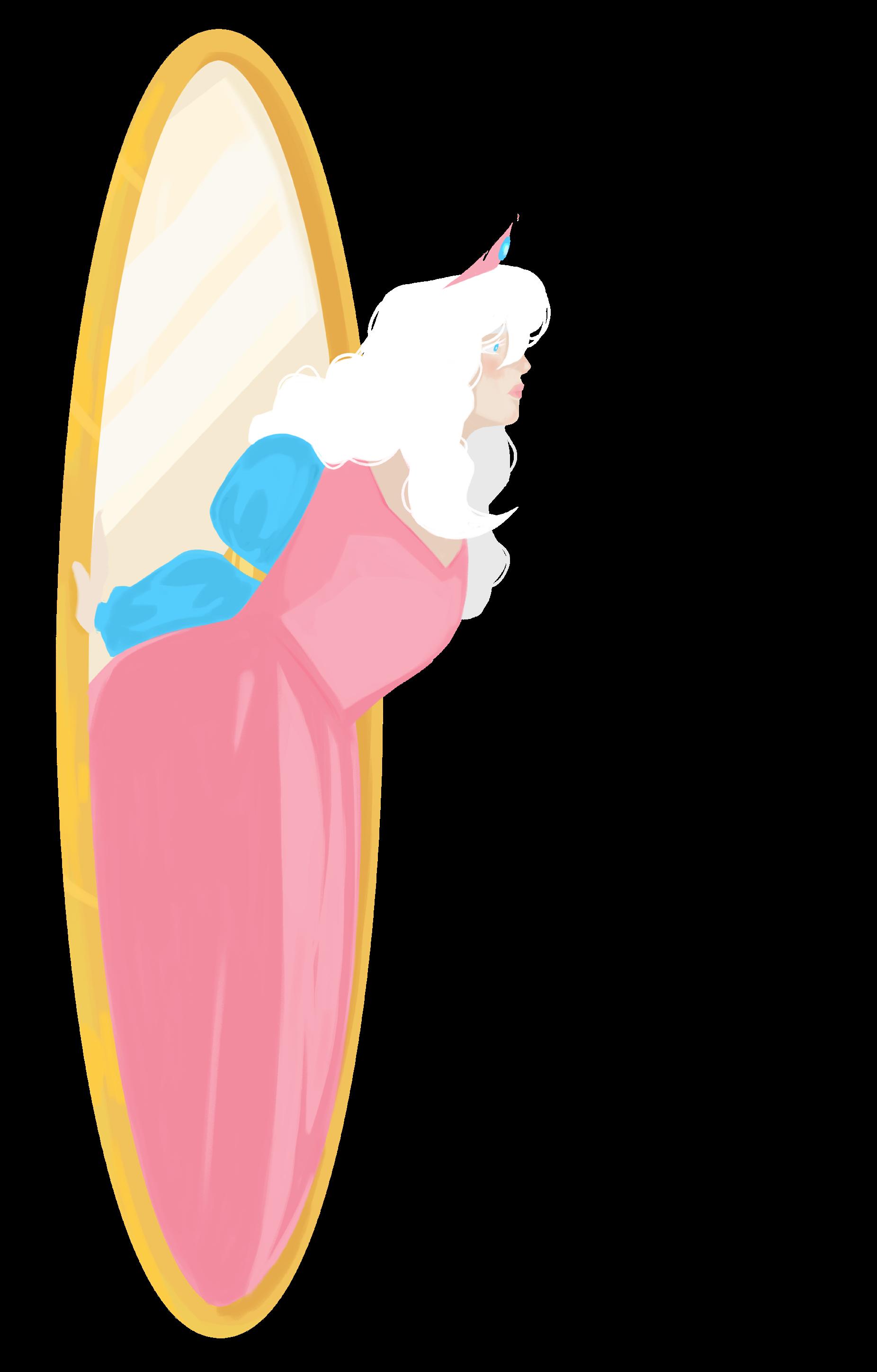 words by CLAIRE BURCHFIELD
words by CLAIRE BURCHFIELD
There you are, enjoying your day out in the world. Out of food at the house so you find yourself at the local Safeway deli waiting in line. It’s “Shanghai Monday” today so you’re grabbing some orange chicken and chow mein on your way out after buying ingredients for more rice dishes and salads cause you’re poor and trying to eat healthier. Laughing with your roommate and contemplating what you’re going to cook together tomorrow, the man in front of you grabs his fried chicken that has probably been sitting under the counter for too long and you’re next in line. “What can I get you Sir?” There it goes, under your mask your smile from seconds earlier drains off your face like a waterfall of despair washing over your body and cleansing you from experiencing any joy.
Why do they always call you Sir? Why for one time in your life can they not just ask “What can I get you?” without adding pointless gendering to it. Pull your long hair back from out in front of your face and place your perfect nails you painted black on the counter and say what you’d like in the best sounding voice you can muster.
What did I do wrong? It’s racing through your mind, it’s all you can think about. The voice? No, I didn’t talk yet. Maybe he heard me talking to my roommate. The hair maybe, or the nails aren’t long enough, the


in front of you, you’re being treated like the boy that was in front of her.
They don’t understand how hard you’re trying. The hair, the clothes, the makeup, the voice! No one understands the voice! You have the saddest superpower in the world. You can turn anyone on the planet into a new person just by speaking. Them hearing the most peculiar voice they’ve heard in months come out of the most peculiar looking person they’ve seen in months is enough to leave them visibly puzzled. The questions they
DA life of no dolls because “dolls are for girls.” No dresses, no pretty makeup, no Cinderella story or pretty name. Your parents ask what you want to be when you grow up and you say, “princess,” it’s your dream, you’re just like all the girls on the Disney channel that you watch probably too much. You want the prince charming and the kiss and the library with everything in it. “You’re a boy, you can’t be a princess.”
You may not understand the extent to which I loathe the word “boy.” A lifetime of always being “the boys” when you are with a friend or walk into a room, of always being asked “What can I get you guys?” Of being called “Son” or “Baby Boy” every single chance they get by
your parents which you cannot correct them on because of the havoc that would ensue by telling them about who
Sometimes perfectly nice people can ruin your day without even meaning to and it's sad. The dentist assistant refers to you as a “normal boy” even though you have a preferred name and pronouns marked down. The teacher or sales assistant calls you “buddy” like you’re a fourteen-year-old boy.

People think nothing of the subtle body language or the slips like saying “bro, buddy, dude or guy.” I do, though. I can’t blame them entirely; you may have never had an anxiety attack over what bathroom you should use or if you look good enough today to tell the barista at Starbucks your preferred name without having her question you three times just to make sure she heard you right before shrugging and writing it on the cup as if she was humoring you. But for many of us that’s daily life. I still remember the first time I was called “Miss” without

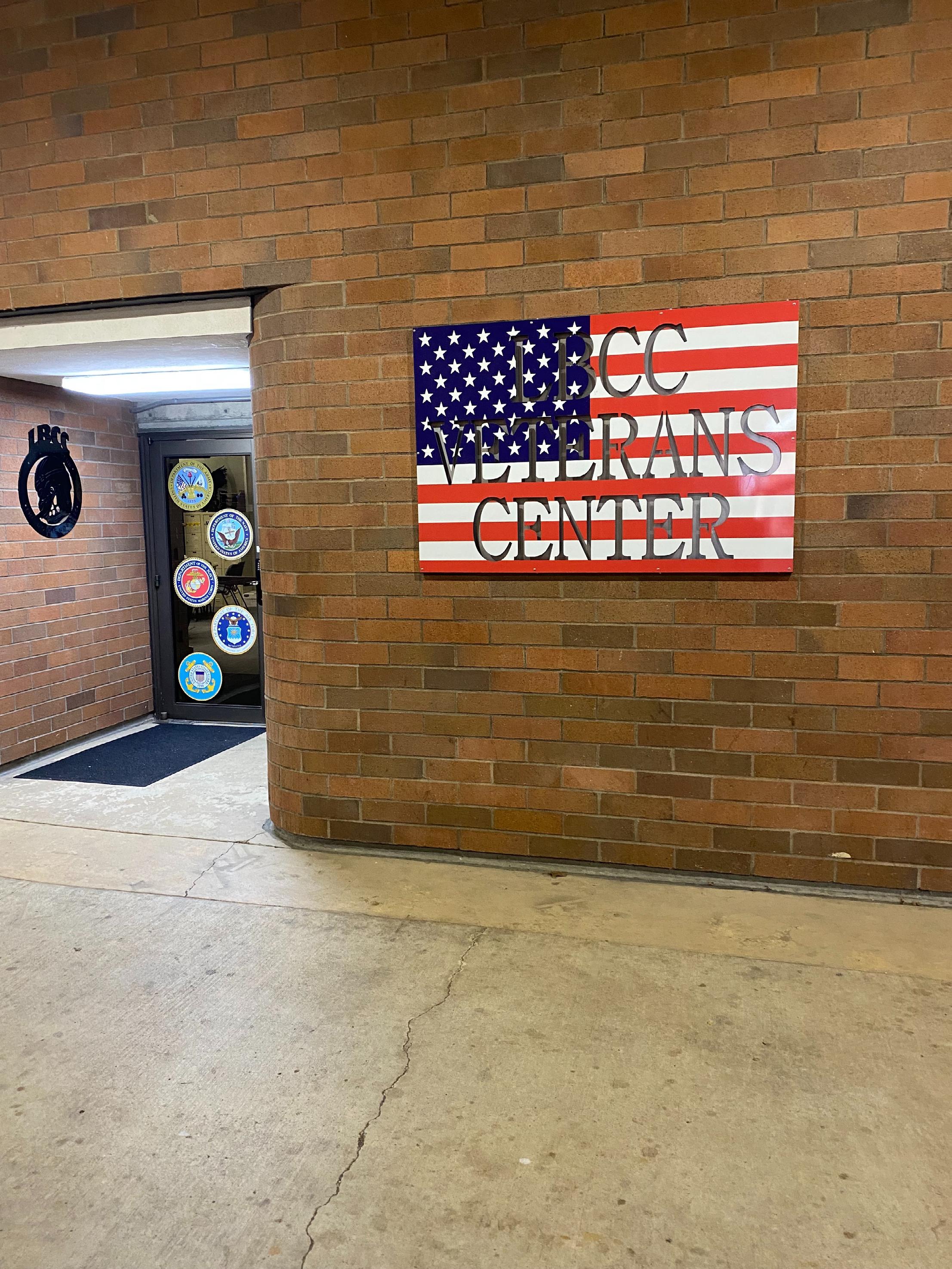


February in the Willamette Valley is not a time of excessive flash and glamor. It doesn’t represent the state’s best angles, makes it near impossible for her to ever find her light. This is the month when the residents are generally clamoring for an escape. They see the cabin fever creeping up in the distance, a fate impossible to outrun in mud boots and
damp attitudes. California. Hawaii. Mexico. These are the ones stealing our rainedout hearts this time of year. Hell, even neighbor Bend can tempt our most loyal members the second February steps in to play its one gray note. The truth is, however, that this place, at this time, is its own brand of good-looking. The diehards know this. And so does Photojournalism student
Kalissa Clark. Venturing to the Ankeny National Wildlife Refuge, she documented all that flourishes this time of year, all the brightness this valley has to offer. So don’t be fooled. Oregon’s fog and drizzle is actually just smoke and mirrors — this state has beauty in spades.









 words by KAILEY LEGIER
words by KAILEY LEGIER
bodies and Black features, all while embracing the racist institutions and reap the benefits of the oppression and control of Black folks. NOPE is... spectacular. A straight-up science-fiction horror that keeps you on the edge of your seat, gritting your teeth, saying, “Oh my God, what? It’s a... what?” As usual, Daniel Kaluuya shines brighter than literally any star in the galaxy, with eyes that portray everything, no matter how stoic the expression.
We like horror because we like to be scared. We’re pulled in with the build-up, the suspense, the tension, and then we get the release. We cry out with the big jump scare, the big scream, or the moment the main character gets caught. Comedy is the same formula! Build up the joke, get the audience engaged, but instead of an on-screen slasher moment to release, there’s a punchline. Peele is a master writer, director, and producer, understanding perfectly the connection between comedy and horror, and flowing between them with the ease of a genius. In his position, with his influence, what else could he do but take budding young Black directors under his wing?
So, yes, we’re going to talk about the Candyman series. If you haven’t seen the 1992 original, I am begging you to watch it. It is supernatural horror at its finest. It follows a white graduate student pursuing a masters in folklore and urban legend, leading her to Cabrini-Green Homes housing project in Chicago where the legend of the Candyman is seeped into the souls of all the folks that live there. I really, really don’t want to spoil anything about this movie, but it will change your whole life, I’m serious. Candyman (2021) is a direct sequel, a supernatural slasher written by Jordan Peele and directed by Nia DaCosta, a breakout Black creative whose skill turned this sequel into a damn masterpiece. Each shot is meticulous, careful, intentional. You get sucked into this story, sighing and shaking your head at the white folks, saying, “I told you so!” This film explores urban Black folklore, the power of words, and the power of community. I’m saying it now, Nia DaCosta is someone to keep on your radar.
Black horror is beautiful and it is in full force.
If you are a young Black creative out there, unsure of whether or not you can break out into an industry like this, an industry so heavily dominated by people that don’t look like you, let these creatives be an inspiration. Dive into their work and into your own.
We see you, we hear you. We are all rooting for you.
Quirky start. Weighty everything else.
Loud and sinister and overwhelming.
A layered mastery of symbolism.
Eking out all day and then quitting time and they hit the streets. It’s already dark. Their days are growing short. This time of year makes you feel even grayer than usual. Tacked-up cartoons add a little homey touch. They decide what will have to wait until tomorrow, click off desk lights, become visible over cubicle walls. These days disappointment is modular and interchangeable and snaps together easily. According to diagrams fit three words together: See You Tomorrow. People huddle into elevators and ride down into in-betweenness, into the space between work and home that is a kind of dreaming: it’s where they go to make sense of what just happened so they can go a little farther.
PUBLISHER: Sega
DEVELOPER: Sonic Team
PLATFORM: PS4 (Also available on PC, PS5, Xbox One, Xbox Series and Nintendo Switch)
ESRB RATING: E10+

OVERALL RATING:
On November 8, 2022, the latest installment of the long-running Sonic the Hedgehog series saw release with Sonic Frontiers. While the 3D installments of the franchise have often varied in quality compared to their 2D counterparts, the game easily makes for the best 3D entry in the series in over a decade.
Set on an enigmatic archipelago known as the Starfall Islands, the game is the first fullyopen world entry in the franchise (with the concept described as an “Open Zone” level design). As Sonic traverses the five islands to retrieve the Chaos Emeralds, he encounters both familiar allies and new adversaries. One standout character is the mysterious being known as “Sage,” who treads the line between friend and foe over the course of the story.

While the 3D Sonic games have varied more significantly in quality than their 2D counterparts; this game takes all the best elements from the series’ 30-year-plus legacy and adds a variety of new ideas to the mix. The redesigned combat system has an admitted learning curve with its special moves, but once you get the hang of it, it’s as engaging as it is vital for taking on larger bosses. The visual presentation has a combination of lush natural environments, ancient structures and mechanized robots. The robots in this game have less in common with the colorful enemies of past games and pull more
from titles such as Nier: Automata alongside the highly-acclaimed Shadow of the Colossus. Stages from the previous titles in the franchise are also a highlight; reimagined in the in-game sections of “Cyber Space.”
Though the camera can often be busy and hard to follow (especially in later sections of the game), the game’s progression is equal parts fresh and rewarding for longtime fans. Finding hidden beings known as “Koco” on the islands can allow players to upgrade their speed, attacks, defense and even the amount of gold rings one can carry in their inventory. A fishing minigame with Big the Cat also makes for a surprisingly relaxing bonus activity.
As the fastest-selling entry in the franchise since 2001’s Sonic Adventure 2, it’s a strong template for future 3D installments in the series (talk persists of a third entry in the fan-favorite Sonic Adventure games). Overall, Sonic Frontiers is recommended for fans of all ages as the series runs towards a new horizon.

Complete the grid so each row, column, and 3x3 box (in bold borders) contains every digit.



Head to The Commuter website (via this handy QR code!) to get the latest engaging stories not featured here. And while you’re at it, sign up for our newsletter so you can be front and center when we pour our hearts out about the latest campus and local news!
In love and looking to take the next step?